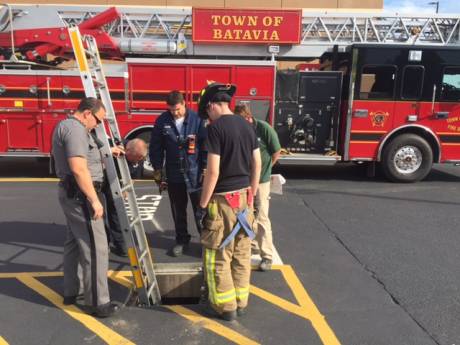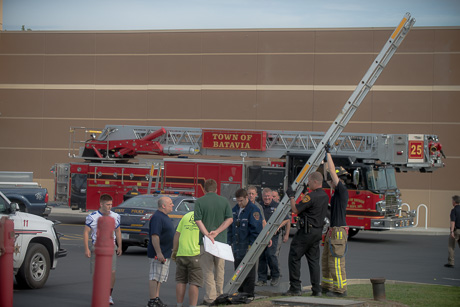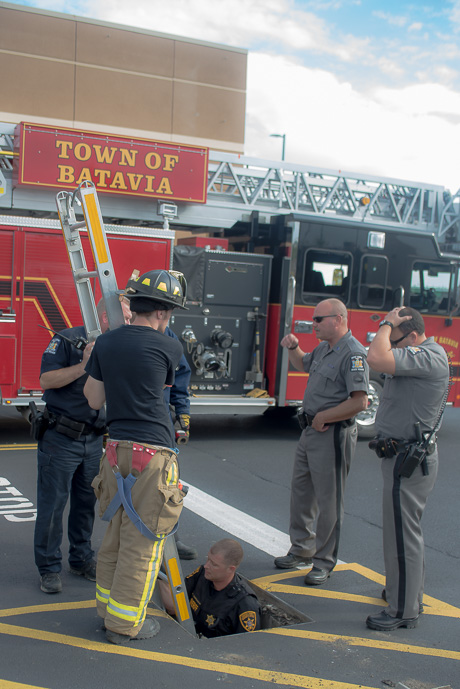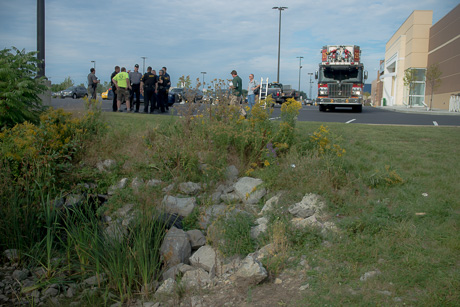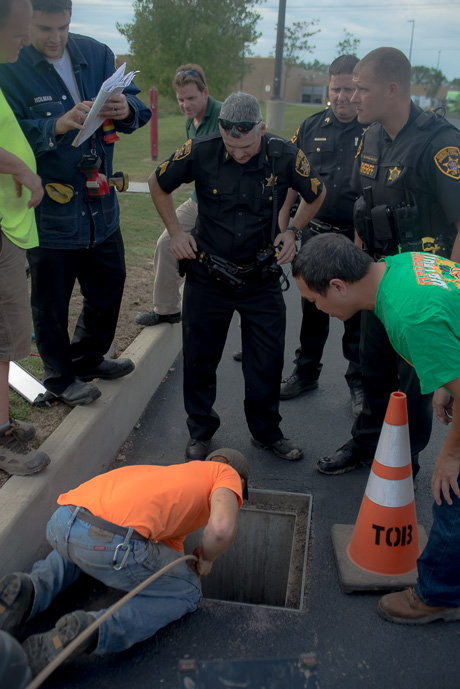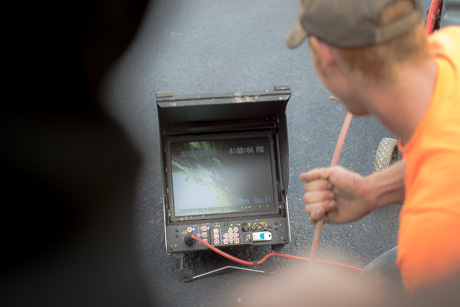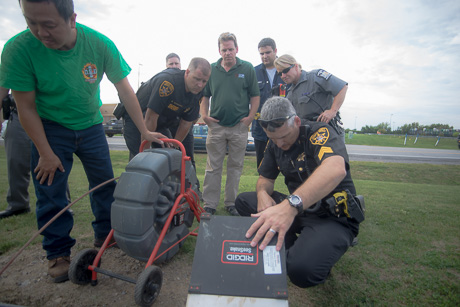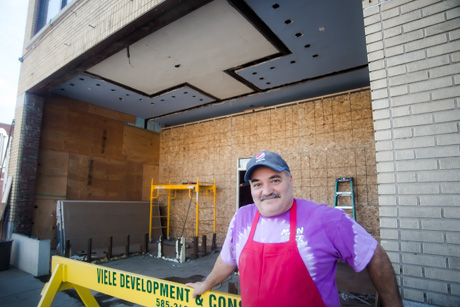All in a day's work for deputies who risked own safety to rescue suspected shoplifter from storm drain

Deputies Michael Lute and Chad Cummings.
The two deputies who put themselves in harm's way to crawl down 300 feet of dark, damp, mud-filled corrugated metal to pull Wayne Rinker to safety on Friday hope the shoplifting suspect sees the video of his rescue, sees himself dropping like a gelatinous blob to the asphalt of the Batavia Towne Center parking lot, shivering in a fetal position, covered from head-to-toe in slime, and that in seeing himself so close to death, that it makes a difference in his life.
"I hope he decides to make a change," said Deputy Michael Lute.
Lute and Deputy Chad Cummings volunteered to rescue Rinker after it seemed pretty certain he was still in the storm drain, nearly five hours after he ran from a loss prevention officer at Kmart where he allegedly helped an accomplice steal Legos. The two men have been charged with petit larceny and conspiracy and additional charges are still pending.
Rinker's companion, 21-year-old Michael Delvalle, had already told Lute during a post-arrest interview that Rinker probably shot up heroin earlier, so when it came time to go into the hole, Lute knew he was volunteering for duty to find a guy who might have needles on him, might be uncooperative in a confined space, or could be in mortal danger.
He also knew he would be going down in the hole with the backing of a group of professionals in his department, State Police and Town of Batavia fire, as well as a man in Chad Cummings whom he considers one of the finest officers in the department.
"I knew I had the best backup in the world right behind me," Lute said.
For Cummings, crawling toward the unknown in darkened tunnels, that's just one of the things he does.
Tracking down a suspected criminal in a storm drain is comparable to looking for enemy combatants or their weapons hidden in the undergound passageways of Iraq, which is what he did during the war.
"I used some of that experience I had, and knowing we had the resources from here and from the other departments, from the camera and the robot, that I felt safe going down," Cummings said.
Confined spaces can easily fill with dangerous and noxious gases as well as provide an unexpected drop in oxygen supply, but the fire department strapped monitors to Cummings to keep tabs on the breathable air.
The two men moved slowly through the ooze, Cummings said. It would have been a lot harder on their hands and knees getting through the rippled pipe if not the bit of cushion two or three inches of mud provided.
At first, they weren't even sure the lump in the middle of the tunnel was Rinker. It even crossed the mind of Cummings that it could be some homeless guy who crawled into the drain at another time, and Lute thought of a racoon's nest.
Or Rinker could be playing possum.
"Once Deputy Lute started to see an object in the tunnel, we kind of stopped, assessed and we were giving information back to the outside, letting them know that we did see the suspect," Cumming said. "Then Deputy Lute and I approached cautiously, and once we were there, Deputy Lute was trying to communicate with him. The suspect wasn't communicating back. At that point, we knew we had to pull him out."
There was a moment where Lute and Cummings didn't think Rinker was even breathing, but then Lute caught the slight movement of Rinker's chest heaving under the light of his helmet and they knew he was still alive, though obviously in bad shape.
"Once we realized he was hypothermic and on the verge of dying, we knew we had to get a harness around this guy and drag him out, so we just went to work and got it done," Lute said.
Both Lute and Cummings are fairly new to the Sheriff's Office. Cummings, originally from Massachusetts and married to a Batavia girl, joined a year ago after 13 years in the Army and six as a corrections officer at the Federal Detention Facility in Batavia. Lute pinned on his star-shaped shield for the first time in January. He's originally from Niagara County and spent more than two years working part time for both the Akron and Corfu police departments.
Though they're new guys, they volunteered to crawl into the storm drain. This wasn't a case of dirty, undesirable duty just rolling down hill.
For the first several hours of the operation, authorities couldn't even be sure Rinker was in the storm-drain system. It was only after surveillance video from Kohl's was finally made available and a camera-equipped robot had been in the tunnels that Sheriff's personnel felt certain Rinker was still in that dank space.
"We knew he was down there and we were going to have to go in and find him because if he was unconscious, hurt, we weren't sure what the drugs, what kind of effect it had on him after a big adrenaline rush to now laying down in the cold, wet mud, so we couldn't just leave the scene without clearing and verifying that he is no longer down there," Cummings said.
At some point, the operation ceased to be purely a law enforcement mission for the deputies. There was a human being down there who probably needed their help.
"Once we rescued him out of the tunnel," Cummings said, "then we can pursue and follow up with the charges, but at that point it just became more of a rescue operation vs. we were just looking for a suspect. We knew there was a person down there who needed help. Obviously, he wasn't responding to us to help himself to come out. He was determined to stay down there, and at some point, I believe he didn't have the option of moving to get himself out."
That tunnel was a miserable place to be, Lute said.
"Dark and dingy and cold and wet," Lute said. "Not a nice place to be for anyone, I don't care who you are."
When Lute later walked into Rinker's room at UMMC, the trooper guarding him told Rinker, "this is the guy."
"He looked at me," Lute said, "and he said, 'Thanks, man. Thanks for saving my life.' "
Previously:













